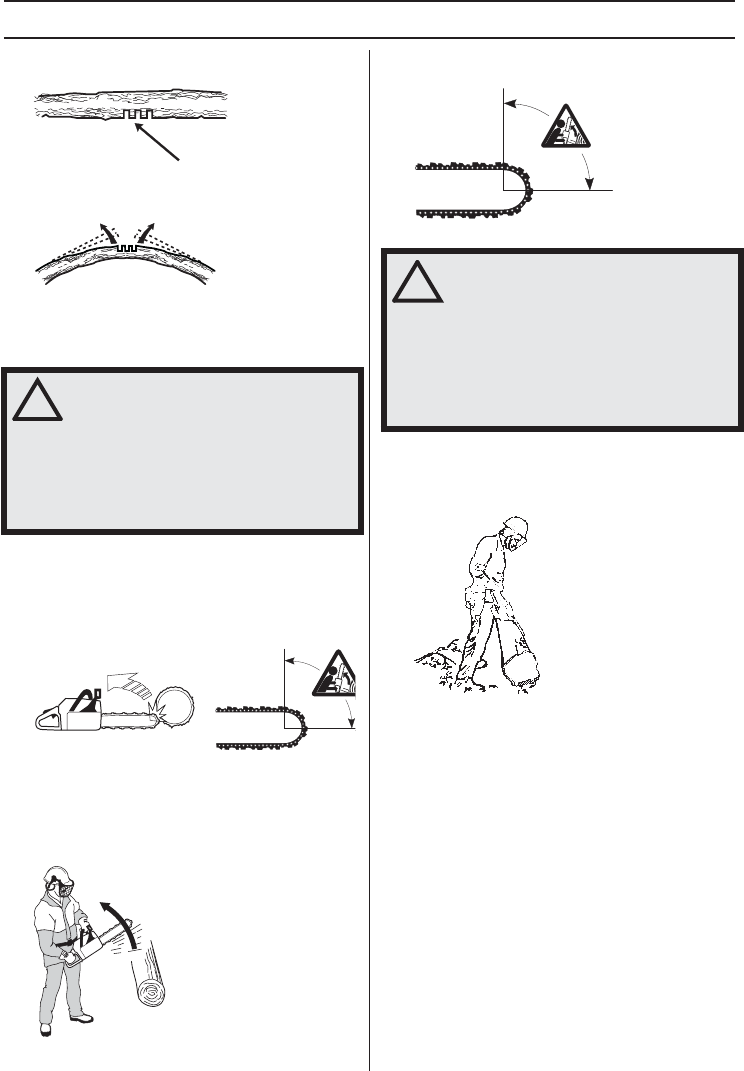
WORKING TECHNIQUES
English – 29
If you must cut across tree/limb, make two to three cuts,
one inch apart, one to two inches deep.
Continue to cut deeper until tree/limb bends and tension
is released.
Cut tree/limb from outside the bend, after tension has
been released.
How to avoid kickback
What is kickback?
The word kickback is used to describe the sudden
reaction that causes the chain saw and bar to jump off an
object when the upper quadrant of the tip of the bar,
known as the kickback zone, touches an object.
Kickback always occurs in the cutting plane of the bar.
Nor
mally the chain saw and bar are thrown backwards
and upwards towards the user. However, the chain saw
may move in a different direction depending on the way it
was being used when the kickback zone of the bar
touched the object.
Kickback only occurs if the kickback zone of the bar
touches an object.
Limbing
Make sure that you can stand and move about safely.
Work on the left side of the trunk. Work as close as
possible to the chain saw for maximum control. If possible,
let the weight of the chain saw rest on the trunk.
Keep the trunk between you and the chain saw as you
mo
ve along the trunk.
Cutting the trunk into logs
See instructions under the heading Basic cutting
technique.
!
WARNING! Kickback can happen very
suddenly and violently; kicking the chain
saw, bar and chain back at the user. If
this happens when the chain is moving it
can cause very serious, even fatal
injuries. It is vital you understand what
causes kickback and that you can avoid
it by taking care and using the right
working technique.
!
WARNING! A majority of kickback
accidents occur during limbing. Do not
use the kickback zone of the guide bar.
Be extremely cautious and avoid
contacting the log, other limbs or objects
with the nose of the guide bar. Be
extremely cautious of limbs under
tension. They can spring back toward
you and cause loss of control resulting
in injury.


















